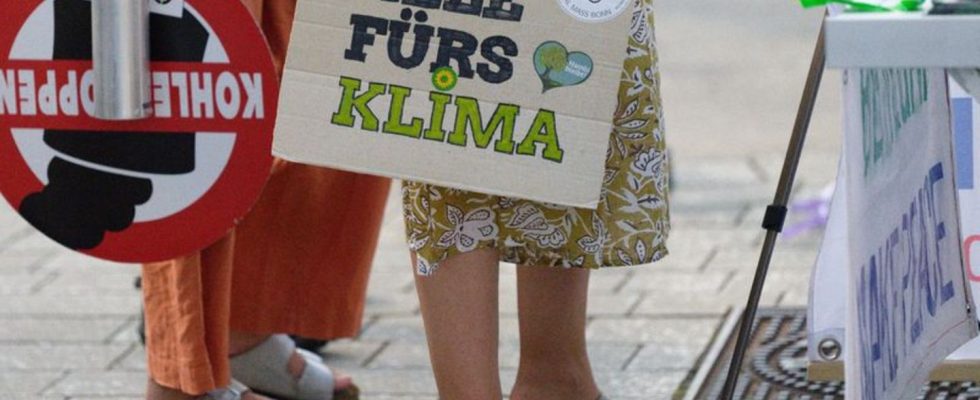climate
FDP answers climate activists: Emissions trading is the way
Participants hold posters at protests by the climate protection movement Fridays for Future. photo
© Henning Kaiser/dpa
Fridays for Future asks: Does the F in FDP stand for fossils? The parliamentary group of the Liberals countered and used the catalog of 101 points as a template, but also for more detailed explanations.
“Technological openness means not blocking oneself against individual technologies, but giving all developments a fair chance,” says the letter from the parliamentary group, which is available to the German Press Agency in Berlin.
Fridays for Future had sent the collection of questions on climate protection to the FDP parliamentary group leadership and party leader Christian Lindner. According to Fridays for Future, some of the questions submitted were selected from hundreds of suggestions that had been submitted after a call to Instagram.
FDP rejects criticism
“Does the F in FDP stand for fossils?” Was one question. The answer: “No. But do the F in FFF stand for flat fun questions?” On an obvious allusion by the activists – “Does Christian Lindner wish the Porsche & VW boss a happy birthday every year?” – comes the counter-question of the FDP: “Would it harm the climate?”
The FDP rejects criticism. “Yes, the key instrument of our climate policy is comprehensive emissions trading. This results in a CO2 price formed on the market, which in real terms represents what it costs to save one tonne of CO2.” If there is no change, CO2 will become much more expensive in the future. “But we are convinced that something will happen – because at the latest due to the CO2 price, it will become in the best interest of companies and consumers to reduce their CO2 footprint,” it says.
Comprehensive emissions trading is urgently needed, at least at EU level, and even better at international level. A “tight CO2 cap” will ensure that the Paris climate goals are reliably achieved. The areas of transport and buildings, which are not yet subject to EU emissions trading, should also become part of such comprehensive emissions trading as soon as possible. Germany could go faster than planned in the EU.
Exchange mainly factual
Although two political opposites meet in questions and answers, the exchange is predominantly factual. The first question is aimed at whether the FDP sees itself as a party for climate protection. In its reaction, the FDP claims to have the most ambitious climate protection program and refers to an FDP veteran: “Hans-Dietrich Genscher founded the Federal Environment Agency in the 1970s.”
But the right way is disputed. The heat pump for heating is just one option that is already being used across the board in many countries and is also enjoying increasing popularity in Germany, and rightly so. But: “The German building stock is diverse. That’s why we think it makes sense to keep as many climate protection options open as possible. In addition to heat pumps, these include wood and bioenergy, solar thermal energy, district heating or hydrogen. We don’t care what the exact share of any technology will be in 2045 – what matters is that the heat supply in Germany is then completely CO2-free.”
The FDP continues to reject a general speed limit on motorways. “Contrary to what is often claimed, the speed limit is neither a particularly effective nor cheap climate protection measure. Under realistic model assumptions, only a few percent of the fuel consumption of private transport is reduced, but at a considerable cost in terms of time,” says one answer.
And the FDP is “generally critical of state subsidies, especially when they are harmful to the climate, and we are committed to reducing them,” writes the FDP. With “great concern” the parliamentary group considers that the ministry responsible for climate protection – i.e. the house of Robert Habeck (Greens) – wants to introduce a new climate-damaging subsidy with a volume of around 30 billion euros with the industrial electricity price, “especially since we are generating more coal than necessary due to the resistance to an extension of the service life of safe and climate-neutral nuclear power plants”.

